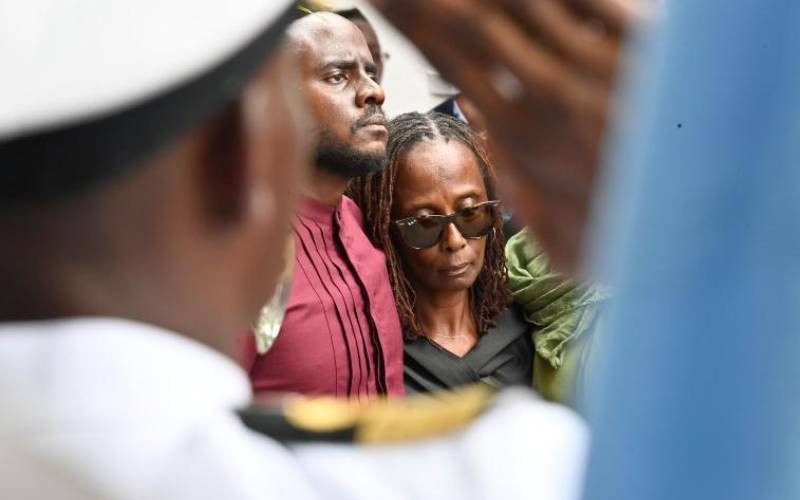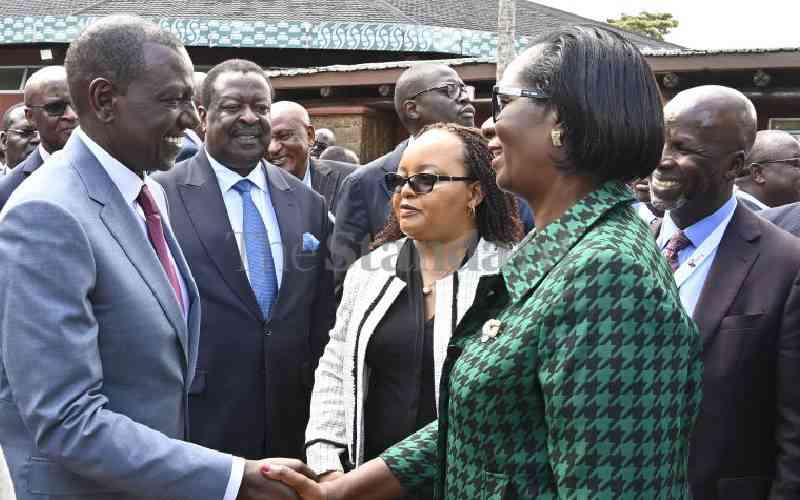NEW YORK: The U.N. Security Council on Friday did not approve an African bid to postpone the International Criminal Court trials of Kenyan President Uhuru Kenyatta and his deputy, William Ruto, for one year.
The 15-member Security Council was split - seven members, including Russia and China, voted for a draft resolution to approve the move, while eight members, including France, the United States and Britain, abstained.
Security Council resolutions need nine votes and no vetoes by any of the five permanent members - Britain, Russia, China, France and the United States - to be approved.
The African Union requested that the U.N. Security Council postpone the trials of Kenyatta and Ruto so they can deal with the aftermath of the Nairobi mall attack in September by the al Qaeda-linked group al Shabaab, in which 67 people died.
Kenyan presidential spokesman Manoah Espisu said on Wednesday that "it is time to see whether the Security Council truly cares about the interests of Africans, considering that Africans have made this request as one."
Kenyatta and Ruto face charges related to the violence after Kenya's 2007 elections, in which 1,200 people died. Both deny the charges and have tried to have the cases adjourned or halted. Ruto's trial began last month, while Kenyatta's trial is due to start on February 5 after being delayed for a third time.
Seven of the members who abstained are all International Criminal Court members - France, Britain, Guatemala, Argentina, South Korea, Australia and Luxembourg. The United States is not a member. The seven who voted yes are not court members - China, Russia, Togo, Azerbaijan, Rwanda, Morocco and Pakistan.
Guatemala's U.N. ambassador, Gert Rosenthal, told the council after the vote that the decision by members to abstain should not be confused as contempt for those who proposed it.
"It has been insinuated that not joining the vote that favors the resolution is somehow an expression of ill-will towards the African Union," Rosenthal said. "My delegation most categorically rejects such a suggestion ... we find this view frankly offensive."
The council can defer International Criminal Court action for one year under Article 16 of the Rome Statute that established The Hague-based court a decade ago. Western and Latin American delegations were reluctant to support a deferral because of concerns it could lead to impunity, diplomats said.
The council turned down a previous deferral request by Kenya in 2011 and rejected a request in May for the cases to be terminated because the council had no such power.
"This is not about the vote," said Rwanda's U.N. Ambassador Eugene Gasana on his way into the council meeting. "This is about our (Africa's) relationship with the Security Council."
- Reuters
 The Standard Group Plc is a
multi-media organization with investments in media platforms spanning newspaper
print operations, television, radio broadcasting, digital and online services. The
Standard Group is recognized as a leading multi-media house in Kenya with a key
influence in matters of national and international interest.
The Standard Group Plc is a
multi-media organization with investments in media platforms spanning newspaper
print operations, television, radio broadcasting, digital and online services. The
Standard Group is recognized as a leading multi-media house in Kenya with a key
influence in matters of national and international interest.
 The Standard Group Plc is a
multi-media organization with investments in media platforms spanning newspaper
print operations, television, radio broadcasting, digital and online services. The
Standard Group is recognized as a leading multi-media house in Kenya with a key
influence in matters of national and international interest.
The Standard Group Plc is a
multi-media organization with investments in media platforms spanning newspaper
print operations, television, radio broadcasting, digital and online services. The
Standard Group is recognized as a leading multi-media house in Kenya with a key
influence in matters of national and international interest.








